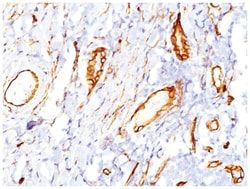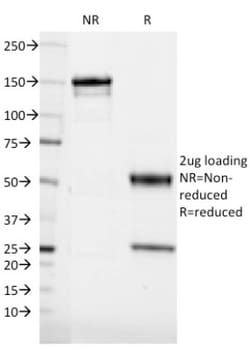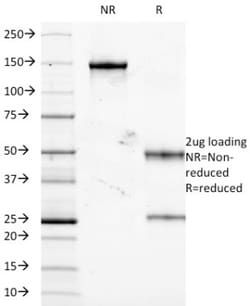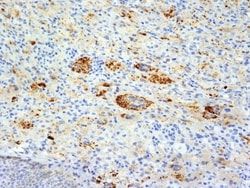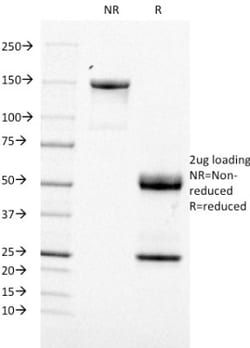Mouse anti-TNF-alpha, Clone: J1D9, Novus Biologicals™
Mouse Monoclonal Antibody
Manufacturer: Fischer Scientific
The price for this product is unavailable. Please request a quote
Antigen
TNF-alpha
Concentration
0.2 mg/mL
Applications
Flow Cytometry, Immunofluorescence
Conjugate
Unconjugated
Host Species
Mouse
Research Discipline
Adaptive Immunity, Asthma, Autophagy, Cancer, Cytokine Research, Diabetes Research, Immune System Diseases, Immunology, Innate Immunity
Formulation
10mM PBS and 0.05% BSA with 0.05% Sodium Azide
Gene Alias
APC1 protein, Cachectin, DIF, TNF, monocyte-derived, TNF-a, TNF-alphacachectin, TNFATNF, macrophage-derived, TNFSF2TNF superfamily, member 2, tumor necrosis factor, tumor necrosis factor (TNF superfamily, member 2), tumor necrosis factor alpha, Tumor necrosis factor ligand superfamily member 2, tumor necrosis factor-alpha
Gene Symbols
TNF
Isotype
IgG1 κ
Purification Method
Protein A or G purified
Test Specificity
This antibody neutralizes TNF alpha biological activities. It prevents TNF alpha induced apoptosis in Jurkat cells. It also neutralizes HurTNFamediated cytotoxicity of L929 cells and inhibits tumor growth in mice. It protects mice against toxicity of HurTNFa. Tumor Necrosis Factor Alpha (TNF alpha) is a protein secreted by lipopolysaccharide-stimulated macrophages, and causes tumor necrosis when injected into tumor bearing mice. TNF alpha is believed to mediate pathogenic shock and tissue injury associated with endotoxemia. TNF alpha exists as a multimer of two, three, or five non-covalently linked units, but shows a single 17kDa band following SDS PAGE under non-reducing conditions. TNF alpha is closely related to the 25kDa protein Tumor Necrosis Factor beta (lymphotoxin), sharing the same receptors and cellular actions. TNF alpha causes cytolysis of certain transformed cells, being synergistic with interferon gamma in its cytotoxicity. Although it has little effect on many cultured normal human cells, TNF alpha appears to be directly toxic to vascular endothelial cells. Other actions of TNF alpha include stimulating growth of human fibroblasts and other cell lines, activating polymorphonuclear neutrophils and osteoclasts, and induction of interleukin 1, prostaglandin E2 and collagenase production.
Clone
J1D9
Dilution
Flow Cytometry 0.5 - 1 ug/million cells in 0.1 ml, Immunofluorescence 1 - 2 ug/ml
Classification
Monoclonal
Form
Purified
Regulatory Status
RUO
Target Species
Human, Mouse (Negative)
Gene Accession No.
P01375
Gene ID (Entrez)
7124
Immunogen
Recombinant human TNF-alpha
Primary or Secondary
Primary
Content And Storage
Store at 4C.
Molecular Weight of Antigen
17 kDa
Description
- Ensure accurate, reproducible results in Flow Cytometry, Immunofluorescence TNF-alpha Monoclonal specifically detects TNF-alpha in Human, Mouse (Negative) samples
- It is validated for Flow Cytometry, Immunocytochemistry/Immunofluorescence, Immunofluorescence.
